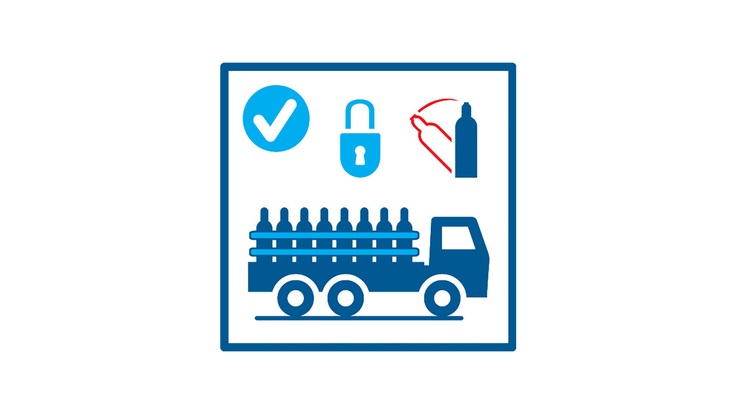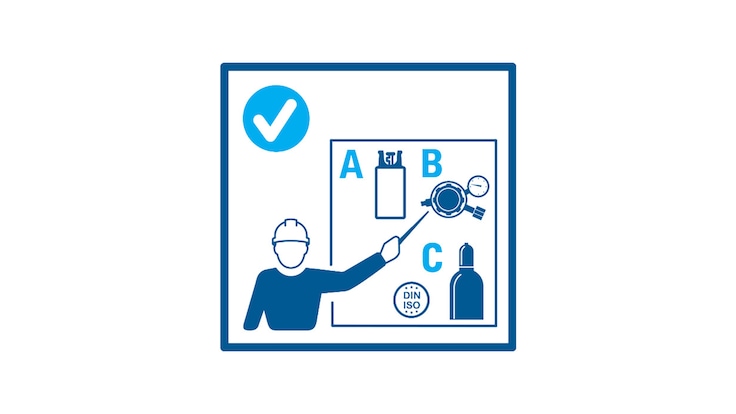Health & Safety: Handling & Transporting Dangerous Substances
Best Practices in the Handling & Transport of Hazardous Substances

Positive Action
At Linde, safety is a way of life that helps us achieve our Zero Today goal. This applies to all areas of our operations - the transport, storage and use of gas cylinders within and beyond company walls included. To help us achieve our aim of zero incidents, we encourage customers, partners and employees to always adopt sound practices when transporting gas cylinders. We can help you mitigate risks by advising you on the right practices, also through practical resources to help you classify and correctly handle hazardous substances, properly identify the relevant risks and manage emergency situations.
Drawing on the vast experience we have gained in handling thousands of gas cylinders safely every day, we have developed simple, effective gas transport guidelines in collaboration with the European Industrial Gases Association (EIGA). By systematically following these guidelines, our customers and partners can also play a key role in avoiding unnecessary incidents.
These guidelines are clearly explained and illustrated in our “Transporting Gas Cylinders” video. In particular, it encourages drivers to
- Never smoke when loading, transporting or unloading gas cylinders
- Secure cylinders properly to prevent them moving or getting knocked over during the journey
- Always use well-ventilated vehicles and unload immediately on arrival
- Check that valves are fully closed to prevent leakage
- Wear suitable protective and high-visibility clothing
- Carry a fire extinguisher
Do not hesitate to contact your local Linde representative or your gases supplier if you have any questions or would welcome advice on the latest legislative updates or local guidelines on the handling and transportation of dangerous substances.

The Importance of Training
Anyone loading, transporting or unloading gas cylinders should receive suitable training so they know and understand the properties and hazards of various gases and know how to respond appropriately in the event of an emergency. This training should be refreshed at regular intervals to stay abreast of the latest regulatory changes. To support and reinforce training in these areas, we have also created videos to raise safety awareness around:
- Gas Hazards & Properties
- Handling Gas Cylinders & Cylinder Care
Do not hesitate to contact your local Linde representative or your gases supplier if you have any questions or would welcome advice on the latest legislative updates or local guidelines on cylinder handling and transportation.